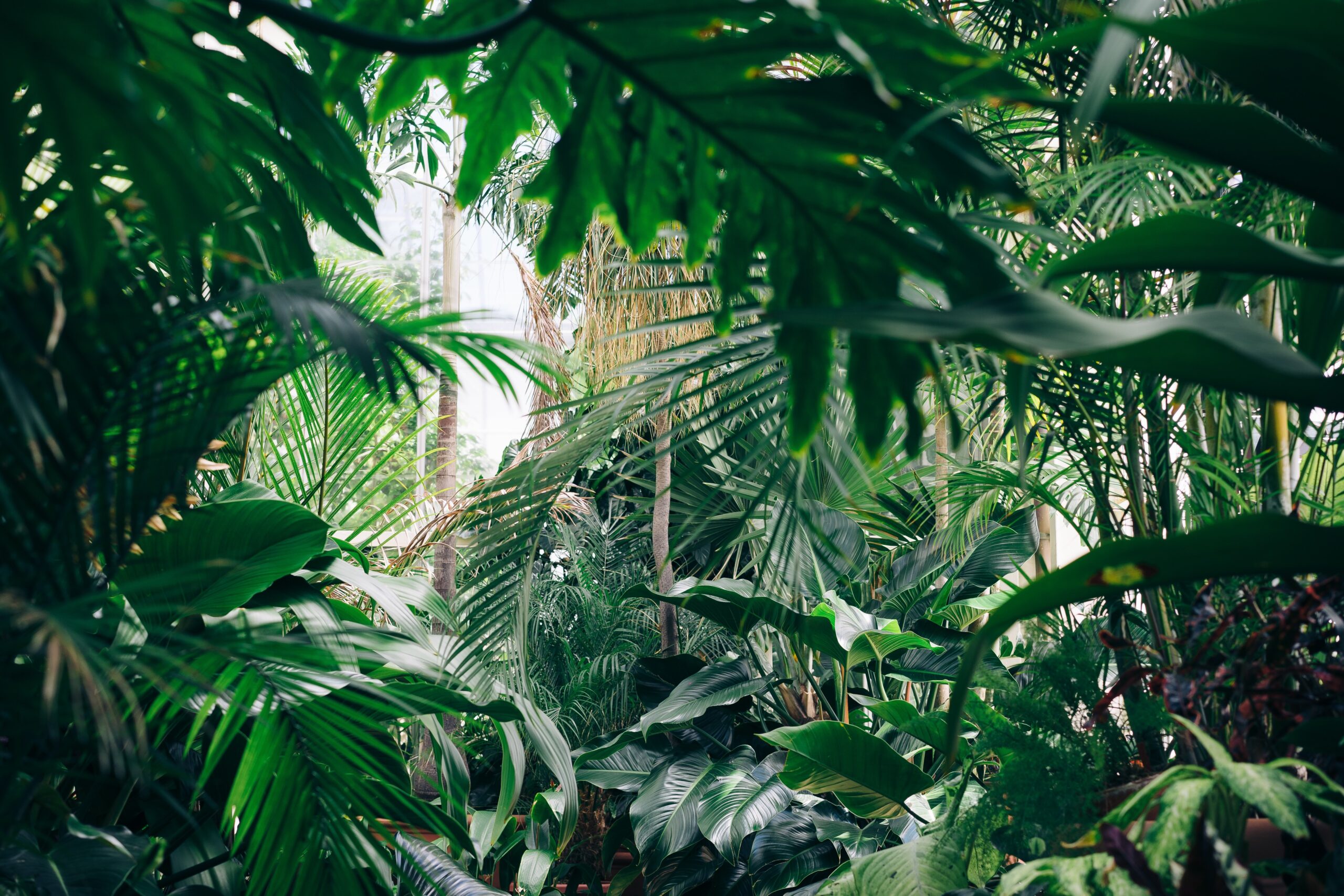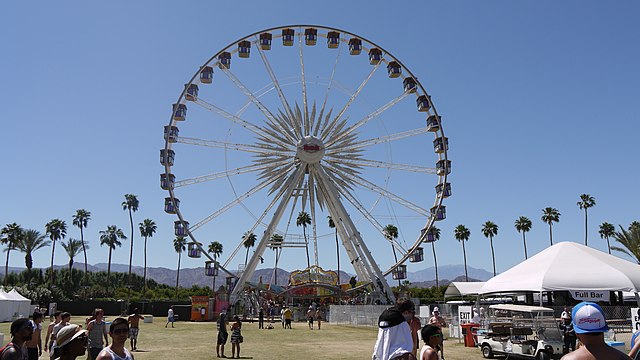
Photo by Chris Abney Unsplash
Recently I’ve noticed that a significant percentage of the women I look up to seem to own a lot of plants.
There also seems to be a clear overlap between women who have overcome difficulties to find happiness and women who own and care for huge rooms of green, glorious ferns, shoots, and sprawling palms.
This New Year’s Eve, Maisie Williams added herself to the list when she posted about her newfound love for gardening.
“2020 will probably be filled with more days spent tending our pot plant children which sounds perfect to me,” she wrote in an inspiring Instagram post, which also detailed her journey into the land of self-love and self-actualization. (I don’t think she was talking about *that* kind of pot, but the message is overall quite inspiring).
One of my all-time idols, Alexandria Ocasio-Cortez, is also open about her plants (and how they connect to her own growth). The congresswoman has spoken out about how her gardening hobby is a form of “self-care” and “mindfulness,” and in one Instagram story, she wrote, “I feel like plants are a great accountability partner because they literally die if you don’t take time to tend to yourself and to them.”
GND Gardening – @ocasio2018
The examples go on and on. Sex-positive activist and artist Favianna Rodriguez also has a lot to say about the benefits of gardening. In a post about how her life has changed a year after leaving an abusive relationship, she wrote, “I focused on unlearning my patterns and creating new practices and ways of being. The most powerful thing I did was to shift my attention to doing things for myself, like having plants, having a garden, masturbating much more, and adopting a plant-based diet. By shifting towards ways I could love myself, either through my own body or my environment, I was learning new ways of being.”
What I notice about many plant-loving women is that their love of plants seems to coincide with a personal growth trajectory, a movement towards internal healing and taking up space. This doesn’t seem like a coincidence.
The Plant Girl: The New VSCO Girl, or Something More?
I’ve heard whispers of a “plant-girl” prototype around social media, which makes me worried that plant-owning has or will just become another act of performative wellness—like Kylie Jenner lips or fitbloggers. It’s already been connected to millennials, whom the New York Times recently accused of “opting to fill their voids — both decorative and emotional — with houseplants.” Even worse, it might become a new version of the #VSCOGirl stereotype, a meaningless term that somehow became yet another way of putting down teen girls on the Internet.
Still, something about all the posts tagged #plantgirl feels—if not outside of Instagram capitalism and media commodification then, at the least, not streamlined to fit into it. A lot of them are grainy and slightly out of focus. They seem to be taken by people whose phones don’t capture everything in magical high-definition. Different from the cabin or van-bloggers, plant-tenders seem less focused on external beauty, more focused on internal growth, small moments, and reclaiming stolen space.
Certainly, this work is not easy. Being a plant girl seems like a lot of effort—just like being AOC is certainly a lot of work, or finding self-love after a childhood spent on Game of Thrones is probably also a moderate amount of work. But maybe that’s the point. Plants yield a little oxygen, a little greenery, and sometimes a little nourishment; they don’t provide the immediate thrill that so many of us are conditioned to seek out in our daily lives, and instead require repetitive yet careful attention. There is no end-point to their growth. In a world where we’re all constantly seeking that dopamine rush of success, maybe plants could be part of the antidote.
I’m sure that men and people of all genders could benefit greatly from plant-growing; the “plant girl” or “plant lady” archetype doesn’t necessarily have to be gendered. Also, many plant-growers don’t use social media or have been growing plants for generations, of course.
But I’m interested in that specific intersection between healing and femininity and coming-of-age in the twenty-first century because I think survival during this time might be found at some crossroads between these things. If plants aren’t the key, they might be vital hints.
Gardening: An Old Trick for Modern Times
The fact that gardening is beneficial for your health is not news, and indeed, it’s been proven many times that the benefits of plant-keeping are innumerable. Gardening can work as a counter to the toxicity of modern life in so many ways—for example, the simple act of putting your hands in soil can be a valuable balm for the monotony of the cubicle life. “When you sit at a desk all day, there’s something about literally putting your hands in the dirt, digging, and actually creating something that’s really beautiful,” said seasoned gardener Gillian Aldrich.
Gardening can also combat attention fatigue that stems from our overwhelming 24/7 news cycle. In a world where we’re constantly asked to devote our total attention to flickering stories and images, the persistence of a steadfast potted plant can be immensely healing.
Growing A Jungle In My New York Apartmentwww.youtube.com
Gardening can also help alleviate symptoms of depression, dementia, bipolar disorder, and much more, according to a multitude of studies. If you’ve got an outdoor garden, the benefits of spending time outside are countless.
But indoor houseplants can also be vital in terms of removing toxins from the air and even boosting your mood. One recent study even found that women who live their lives surrounded by plants lived significantly longer and had better mental health than those who did not. And horticulture therapy, a practice that uses gardening as a form of healing, has been used for hundreds of years and has helped everyone from returning veterans to hospice patients to suffering communities.
Of course, plants have been used as medicine since ancient times. Though the scientific community is just waking up to the benefits of things like psychedelics and the importance of the mind-body connection, this is age-old knowledge.
Many people who do use psychedelics report feeling a deep, profound connection to nature, and some even report that they can hear plants speaking while on the drug. While growing your own plants isn’t the same as actually communing with them, many people have long believed that plants can interact with humans on subconscious levels, realigning negative wavelengths just as they convert carbon into oxygen and sunlight into energy.
Secret life of Plants 1978www.youtube.com
We All Need to Start Gardens
Not all of us can be Maisie Williams or AOC, and not all of us can suddenly change our lives and start gardens and suddenly heal.
Personally, I know I’m not yet ready to be a plant mom. I’m still too irresponsible to risk anything other than a few succulents. Also, plants are expensive and require a certain amount of care and intuition that many people simply cannot afford in this day and age, even if they could gladly provide it.
But is it so stupid to imagine that this paradigm could change and that in the future, more of us might have gardens? That more of us might live more sustainably? That more of us might be content with small victories, with tending to things rather than forcing them into doomed spirals of exponential growth? Is it stupid to imagine that someday, I might be a plant lady? Is it crazy to imagine that the planet could heal?
Maybe it is—maybe we’re doomed—but then again, every forest starts with a single seed. I’m sure my desire to start a garden is really emblematic of a desire to take better care of myself and the world around me. I think it’s connected to a fear of what’s happened to the planet, as we can see in the Australian bushfires that are ripping apart the Australian continent, and a desire to ground myself in the beauty of the earth if only to remember what matters now and then.
I think Hayley Heynderickx puts it best in the song “Oom Sha La La,” off her debut LP, I Need to Start A Garden. “I’m tired of my mind getting heavy with mold,” she sings, and then her voice shifts to a scream. “I need to start a garden.” She shouts the last line over and over again as the music builds.
It’s the sound of panic—and of hope, placed in the earth one seed at a time, with care and dedication, and in faith that someday, something might grow.
- Maisie Williams (@Maisie_Williams) | Twitter ›
- Maisie Williams – Wikipedia ›
- Maisie Williams – Wikipedia ›
- Maisie Williams (@maisie_williams) • Instagram photos and videos ›
- 8 Benefits of Indoor Plants – How Houseplants Improve Your Health ›
- 8 Houseplants To Grow That Can Dramatically Improve Your Health ›
- Health Benefits of Houseplants ›
- 5 health benefits of houseplants | TreeHugger ›
- The Benefits of Having Plants in Your Home | Plant Care Tips – The … ›
- 5 Benefits of Houseplants | Bioadvanced ›
- Benefits of Indoor Plants | Ambius ›
- 7 Science-Backed Health Benefits of Having Plants at Home … ›
- Why Indoor Plants Make You Feel Better ›













